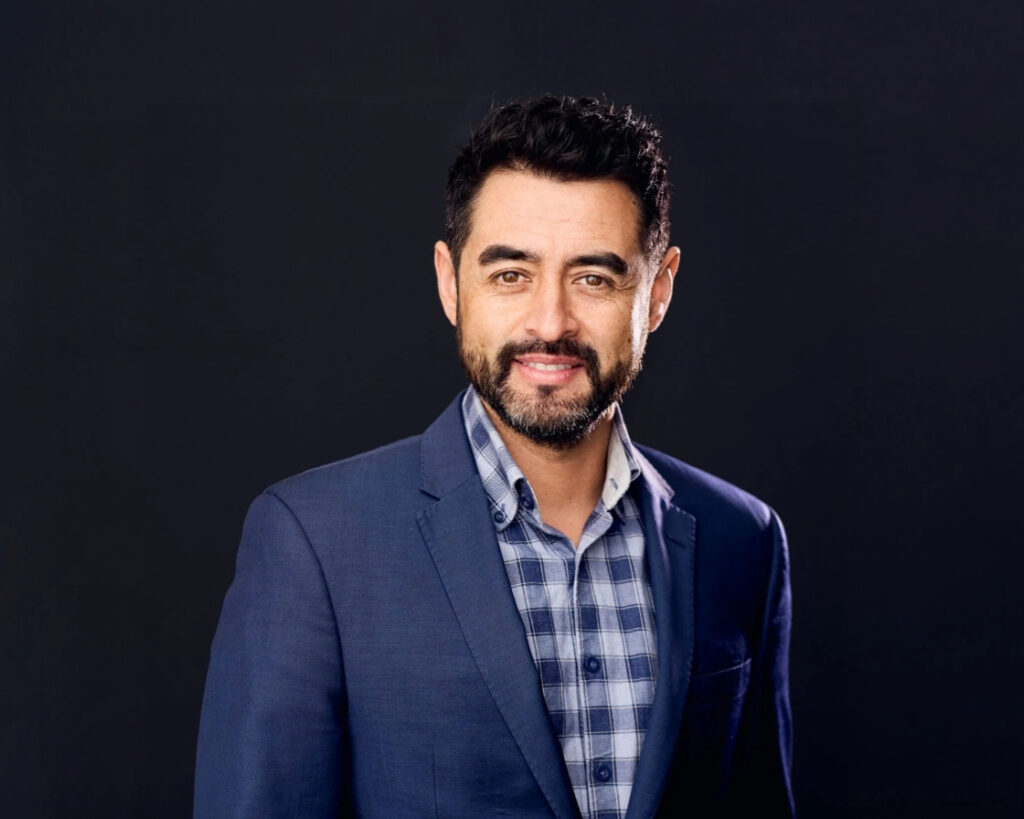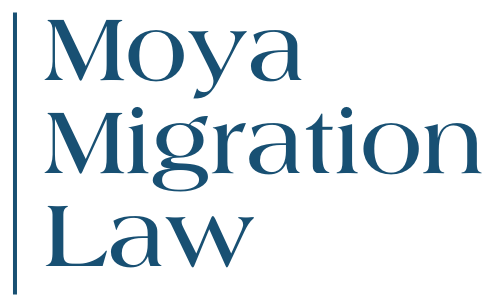Judicial Review of Migration Decisions Australian Migration Lawyers
- Challenge unfair migration decisions in court.
- Experienced identification of appealable legal errors.
- Strategic representation in Federal Court reviews.
- Dedicated guidance towards a just resolution.
Daniel Moya
Founder of Moya Migration Law
Request Free
15-Min Consultation
Our Experiencedise in Judicial Review of Migration Decisions
Identifying Jurisdictional Errors
We meticulously assess ART or Ministerial decisions for jurisdictional errors, crucial for a successful judicial review application.
Federal Court Application & Submissions
Our team prepares and lodges robust judicial review applications with Federal Courts, drafting compelling legal submissions on identified errors.
Dedicated Court Representation
We offer skilled representation throughout all court proceedings, including directions hearings and final hearings for judicial review matters.
Request Your Free 15-Minute Consultation
We encourage a free 15-minute call to discuss your situation & map out a path to successfully appealing your visa refusal or cancellation in court.
What Our Happy Clients Say
Hear directly from our successful learners.
Request Your Free
15-Min Consultation
Understanding Judicial Review for Migration Cases
Judicial review by a Federal Court is not a re-hearing of your visa case, but a review of the legality of a Tribunal’s decision. It focuses on identifying ‘jurisdictional errors’ – significant legal mistakes made by the decision-maker.
Identifying such errors (e.g., misapplied law, denial of procedural fairness) is complex. Strict time limits, typically 35 days from the Tribunal’s decision, apply to lodge a judicial review application, making immediate experienced legal assessment vital.

Why Choose Moya Migration Law for Your Judicial Review?
Challenging a migration decision through judicial review requires specialised legal experiencedise. Moya Migration Law offers extensive experience in these complex court matters, a client-focused approach, and strategic advocacy in Australian Federal Courts.
Extensive Judicial Review Experience
We specialise in identifying appealable legal errors in Tribunal decisions, with a proven track record in judicial review cases before Federal Courts.
Client-Focused & Clear Guidance
We provide personalised service, explaining complex legal options and case progress in plain English, ensuring you are supported and informed.
Strategic Advocacy in Federal Courts
Our approach involves tailored legal strategies for each judicial review, providing strong and strategic advocacy to protect your rights.
Deep Knowledge of Migration & Admin Law
Our profound understanding of migration law, administrative law principles, and court procedures is crucial for effective judicial review.
Request Your Free
15-Min Consultation
Our 5-Step Judicial Review Process
Challenging a migration decision in court is a complex legal undertaking. Moya Migration Law guides you through each critical stage of the judicial review process with experienced assessment, meticulous preparation, and dedicated court representation.
1
Initial Assessment of Tribunal Decision
We thoroughly review the unfavourable ART decision, assess for valid grounds (jurisdictional error), and advise on your judicial review prospects.
2
Strategic Case Planning
If viable grounds exist, we develop a tailored legal strategy, outlining the arguments and evidence required for your judicial review application.
3
Court Application & Submission Preparation
Our team meticulously prepares all necessary court documents and compelling legal submissions, often collaborating with experienced barristers.
4
Lodgement & Court Proceedings Management
We ensure timely lodgement of your judicial review application with the Federal Court and manage all procedural matters and directions hearings.
5
Dedicated Court Representation & Outcome
We provide skilled representation at final court hearings, advocating strongly on the identified legal errors, and guide you on post-decision steps.

Principal Lawyer Daniel Moya
Meet Daniel Moya, Your Migration Judicial Review Lawyer
Moya Migration Law is led by Principal Lawyer Daniel Moya, who brings over two decades of experience in Australian migration law since 2002. He specialises in complex migration matters, including judicial review applications to the Federal Courts.
Daniel is committed to providing clear, practical legal advice and strategic advocacy for your judicial review. He personally oversees these intricate cases, ensuring dedicated attention to achieve the best possible outcome. Daniel also offers assistance in Spanish.
Frequently Asked Questions About Judicial Review Of Migration Decisions
What is judicial review in the context of migration decisions?
Judicial review is a legal process where a federal court, such as the Federal Circuit and Family Court of Australia, examines the lawfulness of a migration decision made by an administrative body like the Administrative Review Tribunal (ART) or a Minister. The court focuses on whether a jurisdictional error or an error of law occurred in the decision-making process, not on re-evaluating the facts or merits of the visa application itself. This review ensures that the decision made by the decision-maker was according to law.
What is a jurisdictional error in a migration decision?
A jurisdictional error occurs when a decision-maker makes a significant legal mistake, meaning they acted beyond their lawful authority or failed to exercise their jurisdiction correctly when making a migration decision. Examples include the decision-maker failing to apply the correct legal principles or visa criteria, denying procedural fairness such as the right to be heard on critical issues, or making a decision with no logical evidence. Identifying such an error of law is crucial for a judicial review application.
Can the court grant me a visa if my judicial review application is successful?
No, the court conducting a judicial review does not have the power to grant you a visa or directly overturn the refusal to result in a visa grant. If your judicial review application is successful because the court finds a jurisdictional error, it will typically set aside (quash) the flawed migration decision. The matter is then usually remitted back to the original decision-maker, like the Administrative Review Tribunal, for a new decision to be made according to law.
How long do I have to apply for judicial review of a migration decision?
Strict time limits apply for lodging an application for judicial review of a migration decision, which is generally 35 days from the date of the decision by the Tribunal (e.g., the ART decision). It is absolutely critical to seek legal advice from experienced immigration lawyers immediately after receiving an adverse migration decision. Extensions to this time limit for lodging a judicial review application are granted by the court only in rare circumstances.
Which court hears judicial review applications for migration decisions in Australia?
Generally, applications for judicial review of migration decisions from the Administrative Review Tribunal (Migration and Refugee Division) are made to the Federal Circuit and Family Court of Australia. In certain circumstances, such as appeals from the Federal Circuit Court or reviews of decisions made personally by the Minister for Immigration (e.g., on character grounds under the Migration Act), the Federal Court of Australia may have jurisdiction. In rare cases, the High Court of Australia could be the appropriate court of Australia.
What is the difference between a merits review by the Tribunal and a judicial review by a court?
A merits review, typically conducted by the Administrative Review Tribunal (ART), involves a fresh examination of your case based on its facts and evidence, where the Tribunal effectively stands in the shoes of the original decision-maker to determine the ‘correct or preferable’ decision for your visa application. Judicial review, undertaken by a federal court, is concerned with the legality of the migration decision-making process itself, assessing whether the decision-maker followed the law and proper procedures, rather than re-assessing the merits of your case. The court looks for jurisdictional error, not whether it agrees with the outcome of the original decision.
Do I need an immigration lawyer for a judicial review application?
While it is technically possible to represent yourself, judicial review is an extremely complex and technical area of immigration law, involving intricate legal arguments about jurisdictional error and strict court procedures. Engaging experienced immigration lawyers who specialise in judicial review matters is highly recommended to ensure your case regarding a migration decision is properly assessed, prepared, and presented to the court. Seeking legal assistance can maximise your chances of a successful outcome when challenging migration decisions.
What happens if my judicial review application is unsuccessful?
If your judicial review application is unsuccessful, the court will dismiss your case, and the original migration decision of the Tribunal or Minister will stand. Additionally, you will likely be ordered to pay the legal costs incurred by the government in defending the application for judicial review. There may be very limited grounds to appeal an unsuccessful judicial review decision to a higher court, which would require further specialist legal advice on the review process.
What types of migration decisions can be challenged through judicial review?
Judicial review can be sought for certain adverse migration decisions made by the Administrative Review Tribunal (ART) or the former Immigration Assessment Authority (IAA) concerning visa applications, including protection visa applications, or visa cancellations. Decisions made personally by the Minister for Immigration, particularly those relating to character grounds under section 501 of the Migration Act, can also be subject to a judicial review application in the appropriate Australian court. It is a process to review decisions where a jurisdictional error may have occurred.
Our Services
Administrative Review Tribunal (ART) Appeals ART Visa Appeals
Visa refused or cancelled? Don’t give up hope. Experienced representation for your ART review to challenge the decision.
Visa Refusals
If your Partner Visa has been refused, Daniel Moya offers 20+ years of experience in achieving positive outcomes at the Tribunal.
Visa Cancellations
Facing visa hurdles like refusals, cancellations, or PIC 4020 issues? Get experienced advice and management for your unique circumstances.
Partner Visas
Begin your journey to permanent residency. Experienced support for all Partner Visa applications, navigating the complex system with confidence.
Protection Visas
Seeking asylum or facing persecution? Daniel Moya provides crucial guidance and strategic advice for complex Protection Visa applications.
Family Visa
Reunite with loved ones in Australia. Explore options for Parent, Child, Carer, and other Family Visas with clear, experienced advice.
Citizenship
Ready to become an Australian citizen? Navigate the application requirements and process smoothly with experienced legal support.
Notary Public in Adelaide Notary Public
Need documents notarised in Adelaide for international use? We provide prompt, convenient, and reliable Notary Public services.
Court Appeals (Judicial Review) Judicial Review
Unfavourable Tribunal ruling? Challenge appealable errors in the Federal Courts with experienced legal guidance for Judicial Review.


